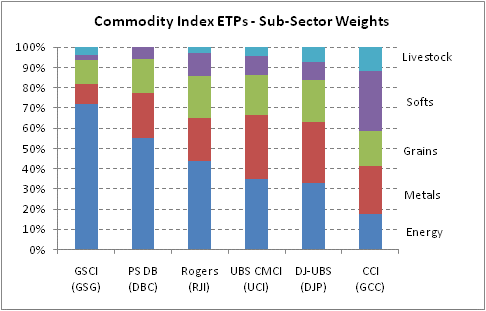IShares ETF Returns v Underlying Index
Post on: 8 Май, 2015 No Comment

iShares ETF Returns vs. the Underlying Index
By JLP | January 12, 2011
I wanted to take a look at how well exchange-traded funds track their underlying indexes. So, I put together a spreadsheet to analyze the monthly returns of the ten iShares ETFs that track the ten sectors of the Dow Jones Total Market Index against their underlying index. I used only full-year data, which began in 2002. Then, I put together this graphic:
Of the ten ETFs, the worst at capturing the indexs return was the Dow Jones Technology Index Fund (IYZ), which captured only 91.48% of its underlying index. The average ETF captured 95.32% of its indexs return. NOTE: These returns are total returns but do not include transaction costs.
For more on tracking error, check out ETF Tracking Errors: Protect Your Returns from Investopedia.
6 Responses to iShares ETF Returns vs. the Underlying Index
Very interesting information.
Have you ever ran the same analysis on Vanguard or Fidelity funds? It seems that these are the most popular for us index fund investors.
Bogey
Kyle Says:
I think that your calculations for Index Return Captured are misleading. Just because IYZ is 91.5% the price of its index doesnt mean it captured 91.5% return. In fact, if you look at the other two values you calculated, both are negative while the index is positive.
Kyle,
Not sure why you call it misleading. If you look at the total returns for IYZ vs. its index, youll see that it had a total return of -4.35% for 2002-2010, while the index had a positive return of 4.55% (just as you mentioned in your comment). Expressed as decimals, the returns are .9565 and 1.0455, respectively. If you divide .9565 by 1.0455, you get .9148 or 91.48%, which is the number I got in my post.
In other words, the ending value for the ETF was 91.48% of the ending value for the underlying index.
Kyle Says:
First of all, thank you for the email, as I did not get a notice that you responded.
Lets first start here:
If you had a Dollar, and an investment made you 91 cents back, you would you have 91% return. Compare that to another guy who made a full dollar. You would say you captured 91% of his return. Now you are the fund, and the other guy is the index.
The forumla for Index Return Captured should not be FundValue/IndexValue, because that assumes both started with $0. But this is not true. Both started with $100 as you state above. Thus the forumula is (FundStart FundEnd)/(IndexStart-IndexEnd). You calculate this for IYM, you get 92.37% Index Return Captured. For IYZ, you have (-4.34/4.55 => -95.6% Index Return Captured.
Basically, IYZ had low corellation to its Index (it went down while the index went up.)
If you hold by your statement that IYZ captured 91.48% return (btw, even by your math, its 91.49%), then I have some bridges to sell you. A lot of people would say, wow, this fund captures 92% of perfect, but by your math, you just lost money.
Put it another way, 0% total index return would be having it in cash. But according to your math, the cash value would be $100. My formula states thats 0% return. Yours states 95.65%. You mean to tell me that cash followed that index by 96%?
Kyle,
I used the words captured return and tracking error to mean the same thing. Sorry for the confusion.
Regarding your 91.48% return (btw, even by your math, its 91.49%) comment, youre using rounded numbers. I stated rounded numbers but used the computation number I got in Excel. In other words, 91.48% is correct.
Finally, Im sorry but I dont follow the logic in your last paragraph. That 95.65% DOES NOT imply return but implies the amount the investor received of the underlying indexs return. In other words, it underperformed the index by 4.35%, which is the tracking error.
Im sorry you find this so confusing.
Kyle Says:
implies the amount the investor received of the underlying index’s return.
This statement right here is blatantly false followed by it underperformed the index by 4.35% which we know not to be true because it headed in one direction while the index headed in the other. I invite anyone with a math background to be a independent appraiser of the situation.
In the meantime, Im really very sorry to to hear your condescending words I’m sorry you find this so confusing and will be unsubscribing from this blog. Not only can the author apparently not use math correctly, but he cannot defend his opinions other than saying I dont follow the logic and put down his readership.














